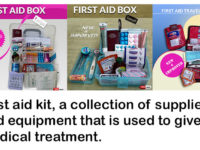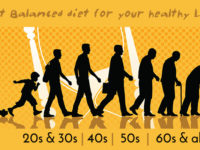1) Be a good role model
You don’t have to be perfect all the time, but if kids see you trying to eat right and getting physically active, they’ll take notice of your efforts. You’ll send a message that good health is important to your family.
2) Keep things positive
Kid’s don’t like to hear what they can’t do, tell them what they can do instead. Keep it fun and positive. Everyone likes to be praised for a job well done. Celebrate successes and help children and teens develop a good self-image.
3) Get the whole family moving
Plan times for everyone to get moving together. Take walks, ride bikes, go swimming, garden or just play hide-and-seek outside. Everyone will benefit from the exercise and the time together.
4) Be realistic
Setting realistic goals and limits are key to adopting any new behavior. Small steps and gradual changes can make a big difference in your health over time, so start small and build up.
5) Limit TV, video game and computer time
These habits lead to a sedentary lifestyle and excessive snacking, which increase risks for obesity and cardiovascular disease. Limit screen time to 2 hours per day.
6) Encourage physical activities that they’ll really enjoy
Every child is unique. Let your child experiment with different activities until they find something that they really love doing. They’ll stick with it longer if they love it. check out these activities for kids.
7) Pick truly rewarding rewards
Don’t reward children with tv, video games, candy or snacks for a job well done. Find other ways to celebrate good behavior.
8) Make dinnertime a family time
When everyone sits down together to eat, there’s less chance of children eating the wrong foods or snacking too much. Get your kids involved in cooking and planning meals. Everyone develops good eating habits together and the quality time with the family will be an added bonus.
9) Make a game of reading food labels
The whole family will learn what’s good for their health and be more conscious of what they eat. It’s a habit that helps change behavior for a lifetime. Learn more about reading nutrition labels.
10) Stay involved
Be an advocate for healthier children. Insist on good food choices at school. Make sure your children’s healthcare providers are monitoring cardiovascular indicators like BMI, blood pressure and cholesterol. Contact public officials on matters of the heart. Make your voice heard.
For Oral Health
1) Teach Your Children
When your child turns 2, you can begin to teach your child proper brushing techniques with no more than a pea-sized amount of fluoridated toothpaste. You should follow up their efforts by gently brushing the teeth again. Modeling correct technique is important. When your child is about 6 years old, he/she should be developing the dexterity to do it alone. You can then introduce flossing.
2) Avoid Sugar
Understand that if your child ingests sugars, it will take the saliva a minimum of 30 minutes to neutralize the acidity that is created by decay-producing bacteria. A sugary snack every hour can mean your child’s mouth is always acid, increasing the chances for tooth decay.
3) Brush With Care
When your baby’s teeth begin to erupt, brush them gently with a small, soft-bristled toothbrush using no more than a thin smear of fluoridated toothpaste.
4) Check Your Water
Determine if the water supply that serves your home is fluoridated. If it is not, discuss supplement options with your dentist. Keep in mind that toothpastes and various foods may also contain fluoride.
5) Fight Baby Bottle Tooth Decay
Don’t let your child go to sleep with a pacifier or bottle filled with anything but water. When teeth are frequently exposed to sugar-containing fluids (including breast milk and formula) for long periods, the potential for decay increases dramatically.
6) Make a Dental Appointment
Your child should see a dentist around the time of his/her first birthday and then regularly thereafter. It is important to establish a dental home. Your pediatric or general dentist will teach you how to prevent dental disease, check for cavities in the primary teeth and watch for developmental problems, and set a positive precedent for future visits.
7) Prevent Cavities
Ask your dentist about dental sealants and fluoride applications to protect your child’s teeth. Sealants can prevent food from getting stuck in the tiny grooves on the chewing surfaces and topical fluoride will strengthen the enamel against decay.
8) Keep Your Cool
If you feel anxious about a visit to a dental professional, try not to convey these feelings to your child. This is very important for emotional well-being. Encourage your child to discuss any fears he/she might have about visiting a dentist, but don’t put any new fears into his/her head. It is a good rule of thumb not to mention the words “hurt” or “pain” as it raises a possibility he/she might not have thought of.
Sources
http://www.deardoctor.com/articles/top-10-oral-health-tips-for-children
http://www.heart.org/HEARTORG/GettingHealthy/HealthierKids/HowtoMakeaHealthyHome/Top-10-Tips-to-Help-Children-Develop-Healthy-Habits_UCM_303805_Article.jsp#.Vmle6Lh97IU
https://www.google.com.np/search?q=images+children&biw=1366&bih=643&tbm=isch&tbo=u&source=univ&sa=X&ved=0ahUKEwjW56XWmtHJAhWFI5QKHamQAowQ7AkIKA&dpr=1#imgrc=sLWm5xM8yBjMdM%3A














